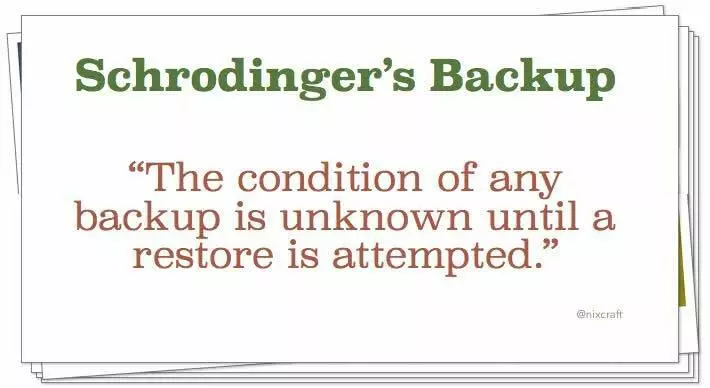All Activity
- Yesterday
-
Wishing our SNF friends a Happy Canada Day! Enjoy the celebration of the anniversary of Canadian Confederation which occurred on July 1, 1867!
-
- 1
-

-
Pale Moon has been updated to version 33.8.0. This is a major development, bugfix and security release. The update includes DiD fixes. This means that a fix is "Defense-in-Depth": It is a fix that does not apply to a (potentially) actively exploitable vulnerability in Pale Moon, but prevents future vulnerabilities caused by the same code, e.g. when surrounding code changes, exposing the problem, or when new attack vectors are discovered. See the Release Notes for numerous changes/fixes included in the update as well as Implementation Notes. Pale Moon includes both 32- and 64-bit versions for Windows: Pale Moon for Windows downloads. Update: To get the update now, select "Help" from the Pale Moon menu at the upper left of the browser window. Select About Pale Moon > Check for Updates. Release Notes Release Cycle
-

Post the funniest thing you saw on the Internets today
securitybreach replied to amenditman's topic in The Restaurant at the Edge of the Universe
-

Post the funniest thing you saw on the Internets today
securitybreach replied to amenditman's topic in The Restaurant at the Edge of the Universe
-

Post the funniest thing you saw on the Internets today
amenditman replied to amenditman's topic in The Restaurant at the Edge of the Universe
- Last week
-

Post the funniest thing you saw on the Internets today
amenditman replied to amenditman's topic in The Restaurant at the Edge of the Universe
-
- 77 replies
-
- arch
- maintenance
- (and 4 more)
-
Yer right with AUR packages it is always wise to do some research. That bash script is the one I posted about before and is super neat and safe and simple. Easy to check the script out and very much KISS.
- 77 replies
-
- 1
-

-
- arch
- maintenance
- (and 4 more)
-
The first three links are good though.
- 77 replies
-
- 1
-

-
- arch
- maintenance
- (and 4 more)
-
I definitely would advise against adding pacman hooks from AUR packages, especially ones that are not popular (very low votes). The highest one only has 9 votes and most have 1 vote. It doesnt happen much but there have been some malicious packages in the AUR before. Remember these are user packages and are not from archlinux.
- 77 replies
-
- 1
-

-
- arch
- maintenance
- (and 4 more)
-
ARCH NEWS - It is very useful to read the latest Arch News before you do an update. This is only useful for folk that like to have a trouble free Arch install with minimum effort. News on Arch Home page Arch News via email https://archlinux.org/feeds/news/ https://github.com/bradford-smith94/informant https://aur.archlinux.org/packages/informant https://github.com/xuanruiqi/newscheck https://aur.archlinux.org/packages/newscheck https://github.com/Antiz96/arch-update?tab=readme-ov-file https://aur.archlinux.org/packages/arch-update https://github.com/mjiricka/archnews?tab=readme-ov-file https://aur.archlinux.org/packages/archnews2 https://github.com/bulletmark/arch-upgrade https://aur.archlinux.org/packages/arch-upgrade https://github.com/dottorblaster/pacnews https://aur.archlinux.org/packages/pacnews My favorite is a bash script I found here at reddit. My post at Scots includes the reddit link too. https://forums.scotsnewsletter.com/index.php?/topic/95506-arch-useful-user-tips/page/3/#findComment-489497 Thought I would post to help out all those Arch users that seem to have trouble with updating their Arch install. ;-)
- 77 replies
-
- arch
- maintenance
- (and 4 more)
-
No problem. I gave wmpdart a post over at reddit. Part of my plan to convert all the world to WM use.
- 350 replies
-
- window manager
- arch
-
(and 4 more)
Tagged with:
-
I'm +1 with Cantata as a front-end for MPD. Didn't have to do much to set it up....just install I think? I'm also similar in that I often play music with a 2nd player....Audacious. If I'm listening to background music while I work, or a random shuffle playlist, or an album, or any other type of extended listening....it's Cantata. If I'm just listening to a single track (or a few), it's Audacious.
- 350 replies
-
- 1
-

-
- window manager
- arch
-
(and 4 more)
Tagged with:
-
Nice, I was using ncmpcpp
- 350 replies
-
- window manager
- arch
-
(and 4 more)
Tagged with:
-
I use mpd with Cantata frontend. It has a systemd service to start mpd: Hmmm, now I don't have code tag available in reply box. And while Cantata works, I usually play music with DeadBeef or MPV.
- 350 replies
-
- 1
-

-
- window manager
- arch
-
(and 4 more)
Tagged with:
-
BTW sorry I didn't answer earlier.. been a bit busy with work this week.
- 350 replies
-
- 1
-

-
- window manager
- arch
-
(and 4 more)
Tagged with:
-
Fair enough, it looks like you gave it a good try anyway! Yeah, a lot of die-hard unix heads on freebsd (like me), they've got some wayland acolytes too of course, which is as it should be The wmpdart is pretty minimalistic as an mpd controller, to be fair, but of course it's nice to have the dockapp integration, the developer has done about as good as job as you could do within the limitations of the window size available to a dockapp.
- 350 replies
-
- 1
-

-
- window manager
- arch
-
(and 4 more)
Tagged with:
-
Looks neat. Thanks for the input but I threw in the towel and went with Goggles Music Manager. Nice to know that the freebsd folk are WM fans.
- 350 replies
-
- window manager
- arch
-
(and 4 more)
Tagged with:
-
Attached desktop screenshot showing wmpdart running at bottom of dock, just below wmix. Name of currently playing album is scrolling across the top of the wmpdart dockapp window. I think you can set it up to display album covers too but I haven't bothered with that. Set up your playlist with one of the standard clients like ncmpc and then mpd will play them and you can control play, pause, forward etc using wmpdart, it's quite good. The developer has user instructions on the github project page.
- 350 replies
-
- 1
-

-
- window manager
- arch
-
(and 4 more)
Tagged with:
-
I followed this howto which sets up mpd in single user mode. There were a couple of mistakes in the guys howto instructions, he got some permissions wrong, but it's easy to spot and fix. Probably needs some adaptation to work on linux, although it should be very similar, it's all standard IPC. Not sure if you need to do some systemd magic on linux, since it sets up a local socket to the mpd daemon, but you might not need to worry about systemd, I would just try it as it's described in the first instance. https://forums.freebsd.org/threads/howto-desktop-musicpd-mpd-configuration.54600/#post-697484 BTW... quite a lot of people in freebsd land use windowmaker, it's quite popular there . People tend to be keen on X11 too.
- 350 replies
-
- 1
-

-
- window manager
- arch
-
(and 4 more)
Tagged with:
-
Am using pipewire as it happens. I may be old but me Arch is right modern an up to date. Probably came with some other program, snuk in under the wire. Thanks folks for the help. I misread this as me having successfully installed. I did do some manual config of mpd, changed user to bloodaxe, and several other customisations. Looks like I got it wrong . lol. Looking around for a light weight gui player. I came across Goggles Music Manager which I had used a long time ago but for some reason I stopped using it. No idea why as it is fast to start up and keeps thing simple which suits me. https://archlinux.org/packages/extra/x86_64/gogglesmm/ This is a very nice article and interview with the developer, done in 2019 so a tad out of date but still relevant. https://opensource.com/article/19/6/gogglesmm-developer-sander-jansen gogglesmm Home site Funnily enough there is a post about GMM here at Scot's from 2009, https://forums.scotsnewsletter.com/index.php?/topic/28779-new-lightweight-music-managerplayer/ Did I mention it is fast , very fast to start up.
- 350 replies
-
- 1
-

-
- window manager
- arch
-
(and 4 more)
Tagged with:
-
Plus your system is probably either using pulse or pipewire. Alsa isn't used as much nowadays as it used to be.
- 350 replies
-
- 1
-

-
- window manager
- arch
-
(and 4 more)
Tagged with:
-
might be something, might be nothing, but.....why do you have JACK audio on this system? JACK (Jack Audio Connection Kit) is a layer on top of ALSA and/or PulseAudio, and is typically found in audio recording desktops to connect different inputs and outputs in a synchronous fashion. I don't know much about MPD, but it looks like MPD is expecting an ALSA connection, but finding a JACK stub instead? If correct, you either need to remove/bypass JACK for the MPD connection; or have MPD connect directly to JACK, which is already connected to ALSA. Is there a specific reason JACK is installed on your 'puter, or is it just cruft you didn't realize was there? That's all I've got for you at this time. Maybe something....maybe nothing?
- 350 replies
-
- 2
-

-

-
- window manager
- arch
-
(and 4 more)
Tagged with:
-

Post the funniest thing you saw on the Internets today
securitybreach replied to amenditman's topic in The Restaurant at the Edge of the Universe
-
Not yet. Your output is not set, your config is not loading, etc output: No 'audio_output' defined in config> exception: Failed to open "/var/lib/mpd/mpd> I have not used mpd in years but here is my old config: https://0x0.st/8l7X.txt Did you follow the archwiki to setup mpd as a lot of the setup is manual? So by default /var/lib/mpd/ hold configs and library but you can easily change all to be under your username like mine was.
- 350 replies
-
- 1
-

-
- window manager
- arch
-
(and 4 more)
Tagged with:

.thumb.jpg.7c3caaf218a75d76e16db7a5bddfb463.jpg)










